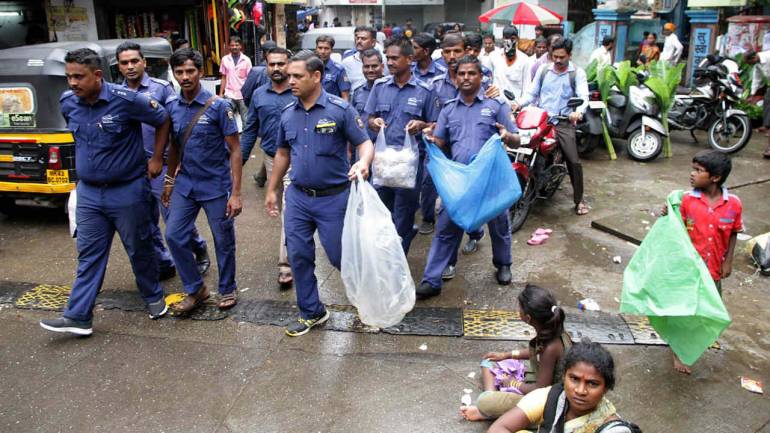MNCs urge Maharashtra to soften plastic ban
June 30, 2018 | Expert Insights

Multinational companies in India are petitioning for a relaxation on the ban imposed by the Maharashtra state government against single use plastics. The move comes amidst rising awareness of the impact of plastic on the environment.
Background
Plastic is ubiquitous. It is present in our clothes, mobiles, laptops, utensils, toys and in many other articles. The word ‘plastic’ comes from the Greek language, to mean something that is fit for molding or changing. Plastic is a polymer; it is created by combining together molecular units of hydrocarbons, which are derived from coal, natural gas or petroleum. It was first created by British inventor Alexander Parkes using natural materials. 1907 was the year in which the first fully synthetic, man-made plastic was created by Leo Baekeland. The epoch of plastics, thus, began and took off drastically after World War II.
Plastic has been in extensive use since it is durable, flexible, water-resistant, lightweight, versatile and inexpensive. It’s for these reasons that plastic plays an indispensable part in our lives. However, plastic is an environmental disaster. Its manufacturing processes employ energy-intensive methods that destroy the ecosystem. The disposal of plastic waste clogs water bodies and land, and pollutes the air via incineration. Not only does it expose plastic workers to carcinogens, but even consumers are at risk of endocrine disorders due to its recurring usage. It is also known to weaken the immune system. What’s worse is that synthetic plastic is non-biodegradable. It poses a hazard to animals. Governments all over the world are grappling with the menace of the all-pervading plastic.
The Maharashtra government in March 2018 announced a ban on the manufacture, use, transport, distribution, wholesale and retail sale, storage and import of single use plastics. This included disposables such as plastic bags, plastic crockery, and plastic packaging among others. The ban was implemented on June 25th 2018, with a few exemptions. The state government also imposed fines and sentences for offenders in order to ensure compliance. This is a move long overdue, since the passing of the Maharashtra Prevention of Non-Biodegradable Garbage Act in 2006.
Analysis
A few days before the implementation of the plastic ban, multinational companies (MNCs) such as Amazon and H&M began lobbying for a relaxation on the ban. The reason for the lobbying is that companies who rely heavily on plastic for packaging would meet with rising costs. Representatives of these MNCs along with plastic industry bodies and lobby groups met Maharashtra government officials, urging them to relax the norms as well as implement the ban in phases over time. “Our demand to the government is: give the industry seven years to come up with alternatives,” said Neemit Punamiya, general secretary of the Plastic Bags Manufacturers Association of India, who attended the meeting. “It cannot happen overnight - we’ve got investments, we’ve got loans to pay and people to manage.” Beverage makers Pepsi and Coca Cola want exemptions, while H&M has asked for the government’s aid in formulating solutions.
According to a local plastics industry, the ban will cost up to 150 billion rupees and nearly 300,000 jobs. For e-commerce industries, the increase in costs due to alternatives such as cardboard or even biodegradable plastic is a serious concern. Several state officials have indicated that the government is looking into the issues raised by industries and MNCs. Compliance is being taken very seriously by the government, with several raids into shops and restaurants conducted.
Counterpoint
The hazard of single use plastics has been known for a very long time, giving MNCs enough time to come up with suitable, cost-effective alternatives. Corporates, too, have a social responsibility in designing sustainable alternatives. Environmental advocates believe that citing rising costs is not sufficient cause for a relaxation on the plastic ban. Powerful industry forces are ever-ready to lobby against such a measure, which can create hindrances at administrative and executive levels.
Assessment
Our assessment is that if the Maharashtra state government ends up relaxing the norms for a few industries, there would be outrage among the citizens. Citizens, after all, have been hit the hardest due to the plastic ban. We believe the measure taken by the state is a laudable move to reduce environmental stress. However, it must ensure that defined, practical alternatives are introduced in time. A blanket ban on plastics is not feasible. There also need to be substitute waste management techniques, such as segregation and recycling at household levels. A complete ban on plastics will be effective only if citizens understand its implications on the environment.








Comments